Anderson Evolutionary Biomechanics Lab, Fall 2023

Back row left to right: Rae Van Kanegan, Emmanuel Lu, Bishal Baskota
Dr. Philip S. L. Anderson
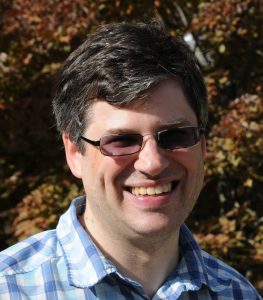 I am an evolutionary biologist and paleontologist who studies comparative evolutionary biomechanics in both vertebrates and invertebrates. I received my PhD from the University of Chicago and a BA from Carleton College. My research involves experimental and theoretical biomechanical analyses in conjunction with evolutionary comparative methods on both living and extinct taxa to address how fundamental laws of physics influence evolutionary processes. This work is question-based and has involved a range of organismal groups from fossil fishes and early tetrapods to modern mammals and crustaceans. Current focuses include: combining kinematics and fracture mechanics to examine the evolution of biological cutting/puncture systems; biomechanical and morphological diversification in deep-time; and evolution of multi-part biomechanical systems.
I am an evolutionary biologist and paleontologist who studies comparative evolutionary biomechanics in both vertebrates and invertebrates. I received my PhD from the University of Chicago and a BA from Carleton College. My research involves experimental and theoretical biomechanical analyses in conjunction with evolutionary comparative methods on both living and extinct taxa to address how fundamental laws of physics influence evolutionary processes. This work is question-based and has involved a range of organismal groups from fossil fishes and early tetrapods to modern mammals and crustaceans. Current focuses include: combining kinematics and fracture mechanics to examine the evolution of biological cutting/puncture systems; biomechanical and morphological diversification in deep-time; and evolution of multi-part biomechanical systems.
POST-DOCS
GRADUATE STUDENTS
Jules Chabain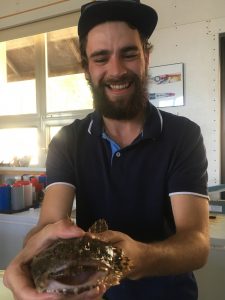
I am a Ph.D. student in the department of Evolution Ecology and Behavior. I graduated with a Master in paleontology in Montpellier (France) where I described 3 extinct species of stingray from the fossil record of Contamana (Peru). During an internship, I joined Friday Harbor Lab at UW on Scan all Fishes project where I learned multiple imagery softwares and developed interest in µ-CT scanning. My research at UIUC focuses on how shape influences function, describing performance of puncturing tools in nature. As a former paleontologist, I have a keen interest in evolution of morphological variation in animal weaponry. I am particularly interested in stingrays who’ve developed a defensive feature located on the base of their tails to protect themselves against multiple predators such as sharks, big teleosts, and crocodiles. I am seeking an understanding of the morphological variation seen in stingray spines and how ecological, phylogenic or biomechanical factors influence that variation using experimental, histological and comparative methods.
Abby Weber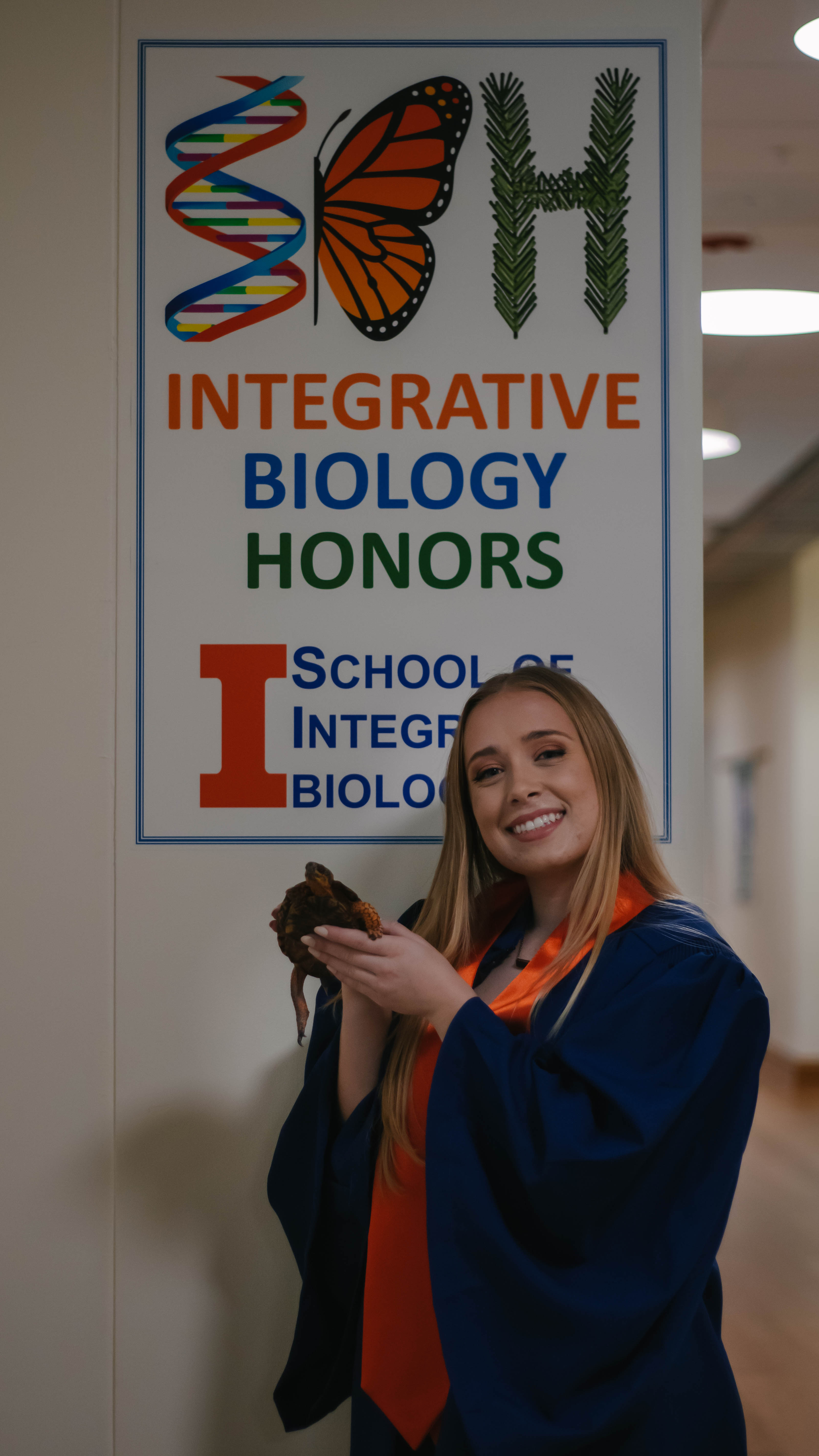
I am a Master’s student in the department of Evolution, Ecology, & Behavior. I received my Bachelor’s in Integrative Biology from the University of Illinois as well. My undergraduate senior project with Dr. Anderson focused on viper fang puncture systems, where I developed a static testing protocol with a materials testing machine. My current research focuses on how the morphological variation in sharpness of wasp ovipositors influences function.
Avi Berger
I am a PhD student in the department of Evolution Ecology and Behavior. I received my Bachelor’s from UC Berkeley with a major in Integrative Biology and a minor in Conservation and Resource studies. After graduating into the pandemic, I worked at UC Berkeley’s Museum of Vertebrate Zoology as a specimen preparator and joined Dr. Jack Tseng’s biomechanics lab, where I learned to conduct microCT scans and use scan visualization software for morphometric and mechanical analyses. My current research focuses on comparative functional morphology and how ecological necessity influences morphologic diversity. I am especially interested in the evolution and diversification of avian hatching strategies, as one of the first barriers a bird will face in its life is fracturing the shell that protected it during development. To explore this, I use 3D imaging and mechanical modeling techniques to understand how eggshell structure changes during incubation and how this affects shell integrity and hatching success.
Natylie Marx
I am a Master’s student in the Integrative Biology 4+1 program. I got my undergraduate degree in IB from the University of Illinois Urbana-Champaign in 2024. I spent my undergraduate research focusing on creating 3D models of glial cells and identifying the type of cells so that future MRI technology can automatically determine if brain tissue is diseased. My current research is focused on the morphology of snail love darts and how the various forms affect mucus dispersal to increase reproductive success.
UNDERGRADUATES
Rae Van Kanegan
I am completing my senior year of undergraduate studies at the University of Illinois Urbana-Champaign, majoring in Molecular and Cellular Biology and minoring in French. For the past two years, I have been studying the morphology of salamander skulls in Dr. Anderson’s laboratory. I am specifically focusing on how these cranial structures differ across environments and lifestyles. To do so, I have had to employ my skills in creating complex 3D models that replicate the shape of each cranium we have CT scans for so that we can perform Finite Element Analysis (FEA). These FEA models are created using multiple engineering and medical-grade software programs that comprehensively analyze how differing cranial structures can be explained by the species’ lifestyles and habitats.
ALUMNI
Dr. Bingyang Zhang (Postdoc)
Dr. Zhang’s research in the Anderson Lab focused on examining questions of how physical and mechanical principles underlying the functional performance of biological puncture systems impact their evolutionary process. He utilized a combination of fracture mechanics, comparative biomechanics, experimental impact dynamics, mathematical modeling, and computational simulation to quantify and generalize how shape, material, and kinematics variables influence the energetics of puncture.
Dr. Hannah Darcy (Graduate student 2017-2023)
Hannah’s thesis focused on the impact of skull morphology and material properties on the feeding performance if salamanders. In particular, functional differences between aquatic and terrestrial forms. She is currently an Associate Technology Manager for the university of Illinois.
Dr. Brad Scott (Graduate student 2017-2023)
Brad’s thesis work focused on the functional morphology and swimming biomechanics of early vertebrates, especially the transition from jawless vertebrates to jawed vertebrates during the Silurian and Devonian periods (440–360 million years ago). He is currently an assistant professor of biology and environmental sciences at Concordia University of Edmonton.
Dr. Stephanie Crofts (Post-doc 2017-2020)
Stephanie’s research focused on form and function in puncture tools across animals and plants as well as the mechanics and muscle physiology of trap-jaw ants. She is currently an assistant professor at the College of the Holy Cross.
Angelo Marra (Undergraduate researcher 2020-2021)
Angelo studied the evolutionary development of tail morphology in relation to ecology within multiple species of sharks.
Daniel Clark (Undergraduate researcher 2019-2020)
Daniel worked on puncture resistance in egg shells related to brood parasitism.
Jay Wilson (Undergraduate researcher 2019-2020)
Jay worked on scaling in head capsule morphology of three different trap-jaw ant taxa.
Alexandra Baumgart (Undergraduate researcher 2017-2018)
Alexandra studied linkage mechanics in fishes. She is currently a PhD student at Caltech.
Juliana Vidal (Undergraduate researcher (2017-2018)
Juliana was an undergraduate in the lab researching physical/acoustic signalling in Killifishes. She is currently in the Peace Corp.
Previous Lab Photos:
Spring 2022
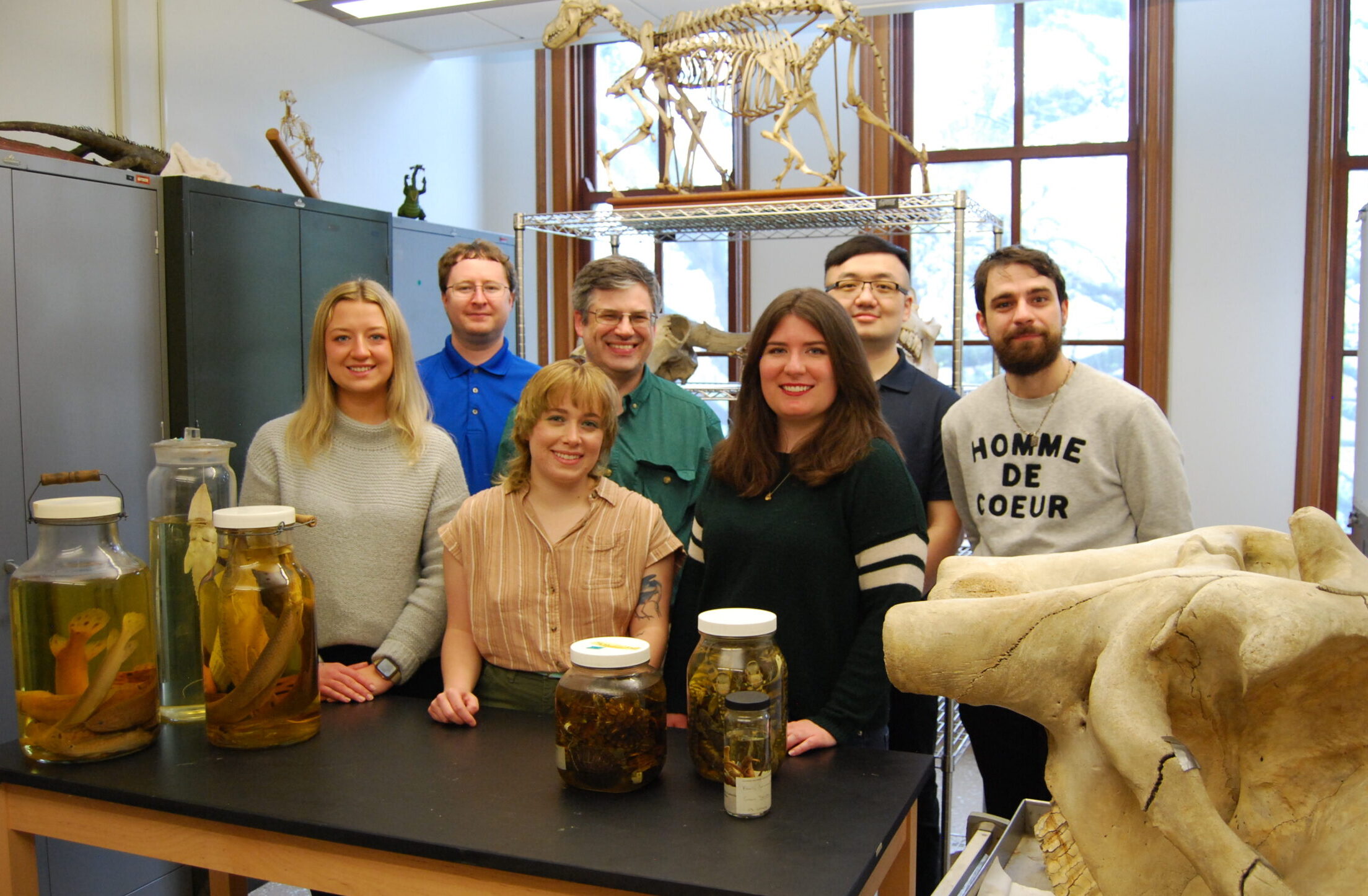
Back row left to right: Brad Scott, Dr, Phil Anderson, Dr. Bingyang Zhang, Jules Chabain
2017-2018
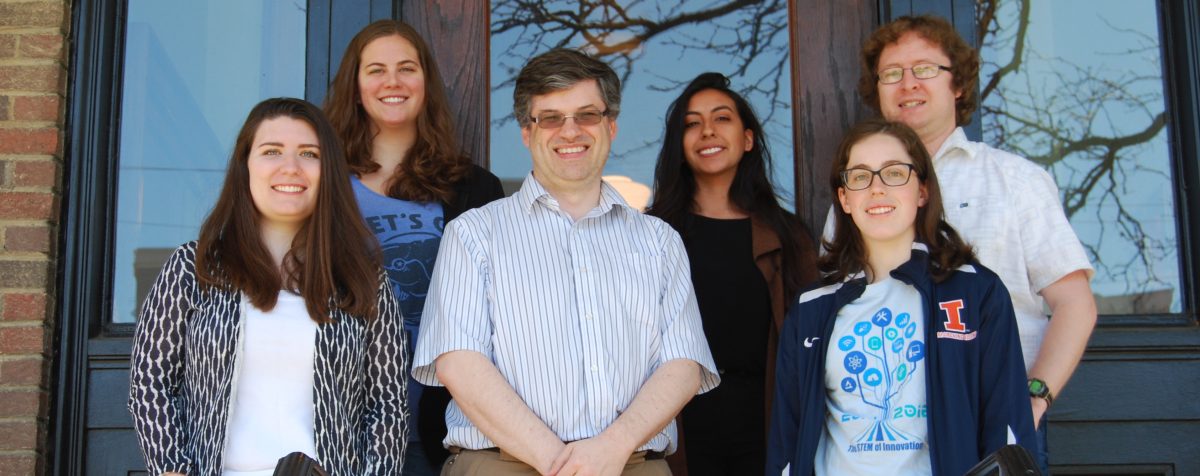
Back row left to right: Dr. Stephanie Crofts, Juliana Vidal, Brad Scott
